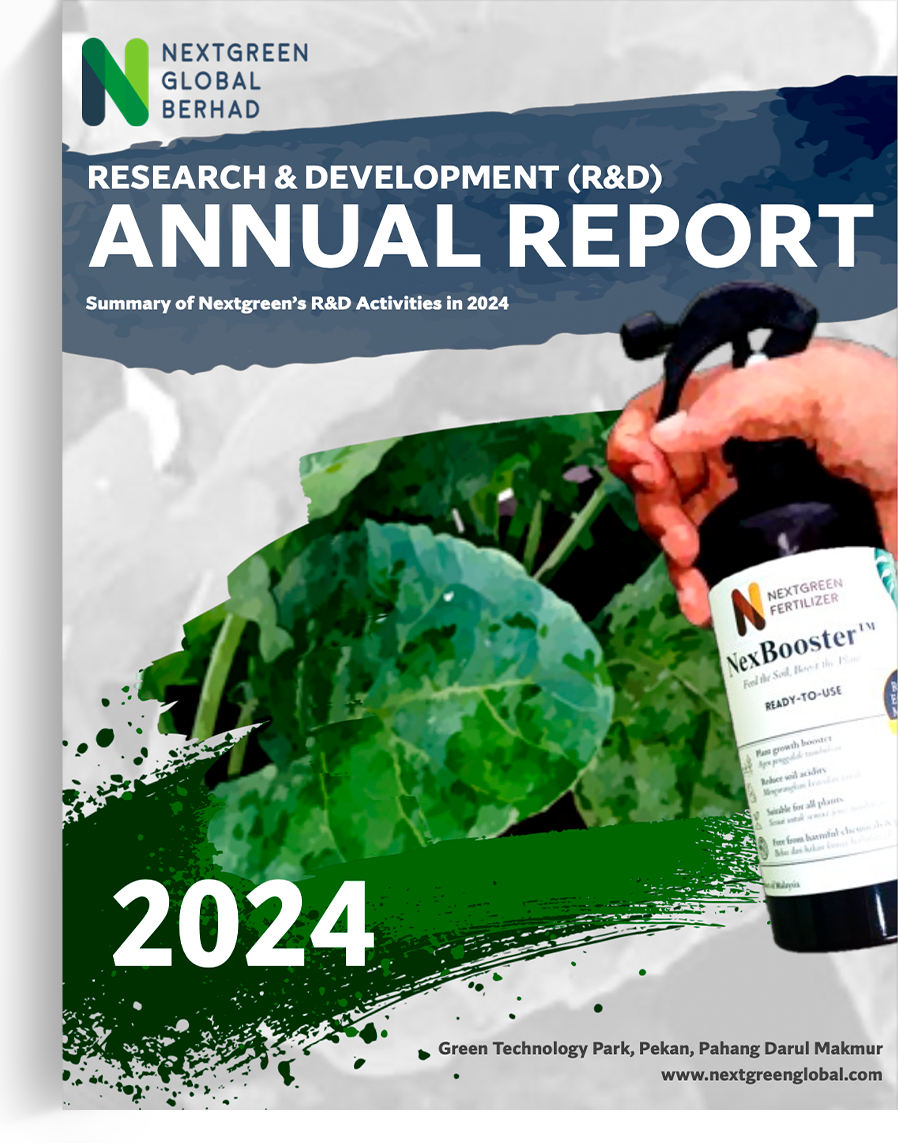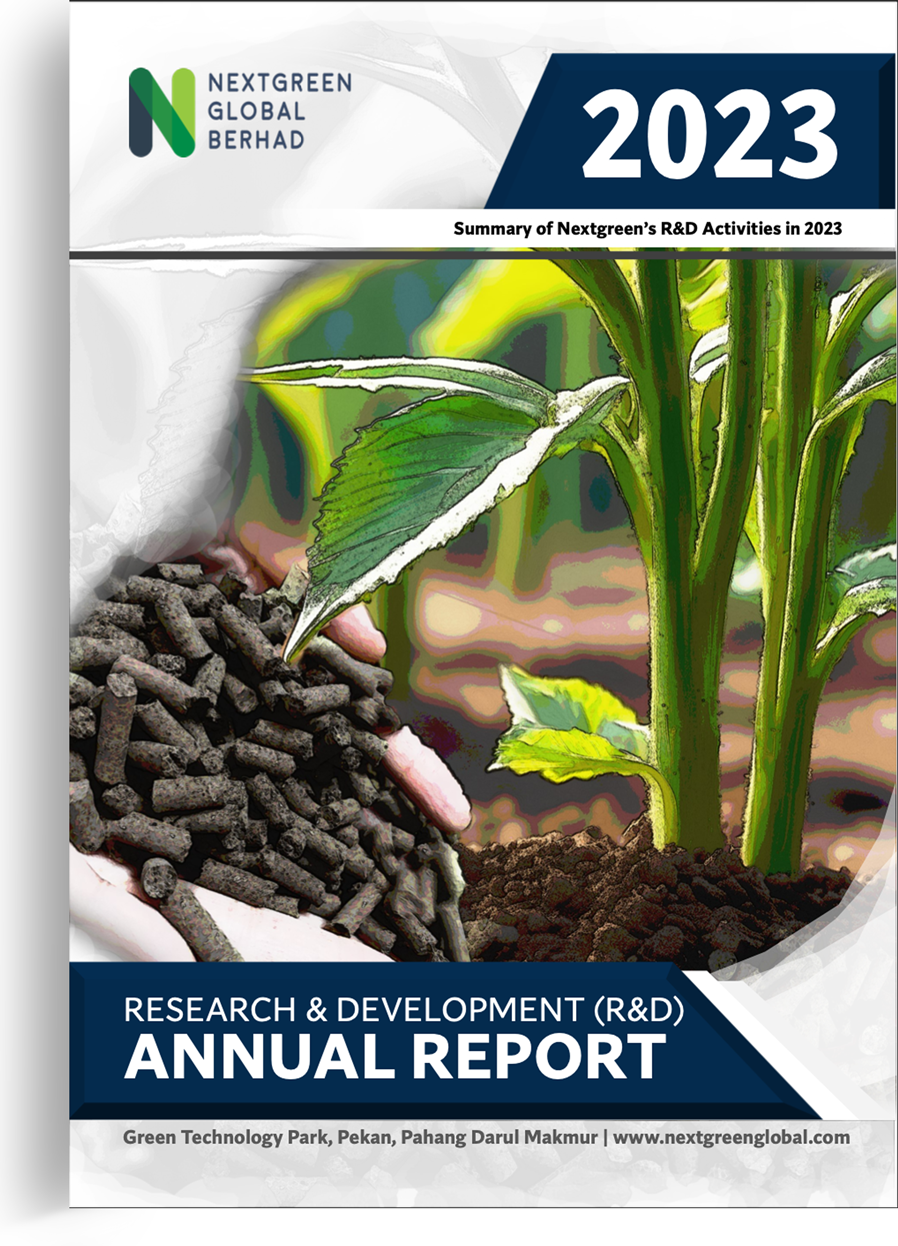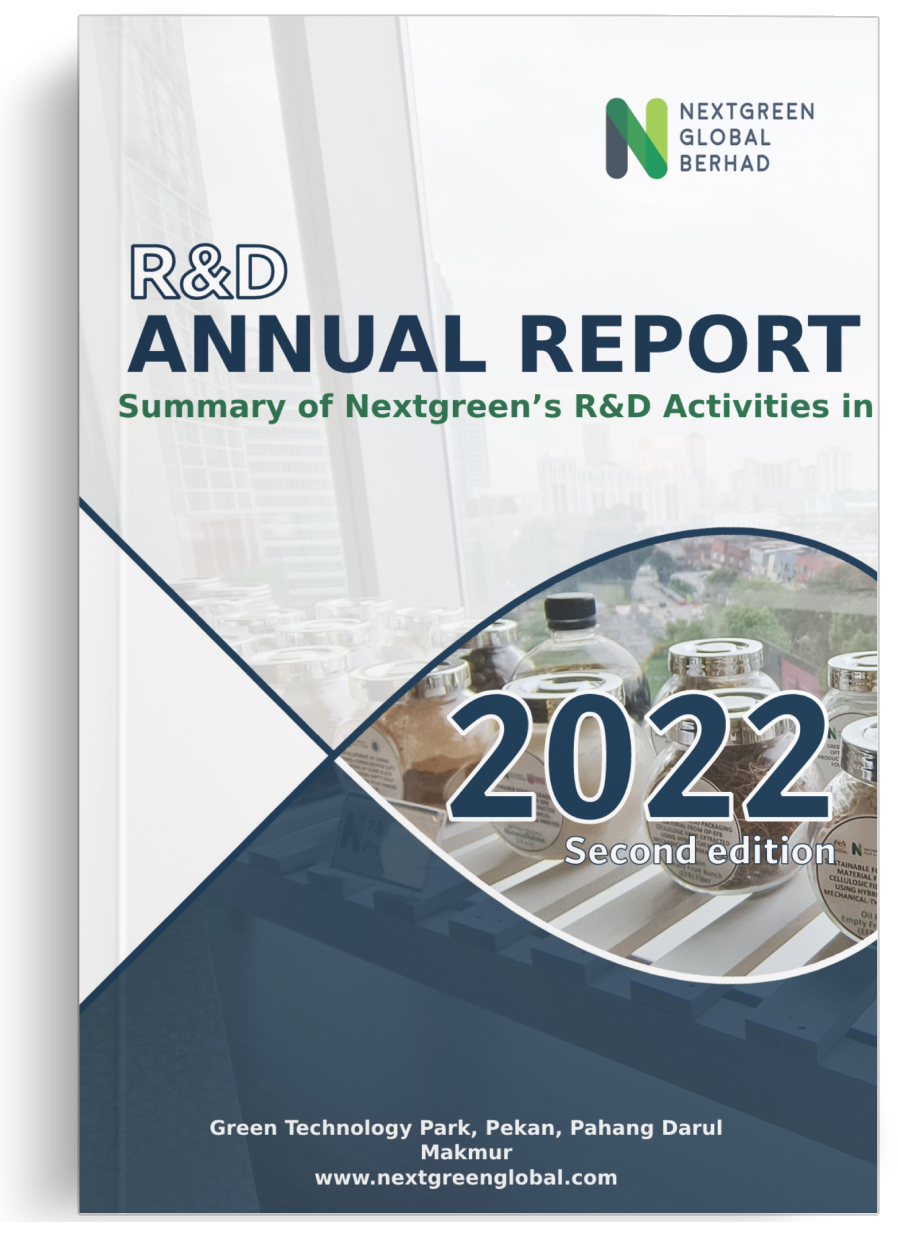

- Publications
Research & Development Annual Report 2024
- Nurturing the future with biomass
- Mapping our footprint: A commitment to the planet
- Carbon return, clean getaway
- Leveraging the value of oil palm biomass
Research & Development Annual Report 2023
- Feed the Soil, Boost the Plant
- EFB-Kenaf Synergy
- Carbon Return, Clean Getaway
- Reviving the Black Diamonds
Research & Development Annual Report 2022
- Nanocellulose
- Sustainable Food Packaging Materials from EFB Pulp & EFB Nanocellulose
- EFB Boiler Ash as Soil Conditioner for Bok Choy & Marigold Planting
- Biochar & Activated Carbon for Boiler's Discharged Water Treatment
Research & Development Annual Report 2021
- Pulp & Paper Market
- How Nextgreen Gives Back To The Environment
- How Nextgreen Fosters Innovation Through R&D
Green Phenolic Resins from Oil Palm Empty Fruit Bunch (EFB) Phenolated Lignin
and Bio-Oil as Phenol Substitutes for Bonding Plywood
-
Abstract: Lignin is a natural biopolymer with a complex three-dimensional network and it is rich in phenol, making it a good candidate for the production of bio-based polyphenol material. This study attempts to characterize the properties of green phenol-formaldehyde (PF) resins produced through phenol substitution by the phenolated lignin (PL) and bio-oil (BO), extracted from oil palm empty fruit bunch black liquor. Mixtures of PF with varied substitution rates of PL and BO were prepared by heating a mixture of phenol–phenol substitute with 30 wt.% NaOH and 80% formaldehyde solution at 94 °C for 15 min. After that, the temperature was reduced to 80 °C before the remaining 20% formaldehyde solution was added. The reaction was carried out by heating the mixture to 94 °C once more, holding it for 25 min, and then rapidly lowering the temperature to 60 °C, to produce the PL−PF or BO−PF resins. The modified resins were then tested for pH, viscosity, solid content, FTIR, and TGA. Results revealed that the substitution of 5% PL into PF resins is enough to improve its physical properties. The PL−PF resin production process was also deemed environmentally beneficial, as it met 7 of the 8 Green Chemistry Principle evaluation criteria.





